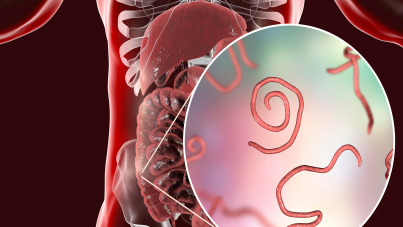A study of how injured mouse cells trigger immune responses suggests novel strategies for preventing and treating everything from parasites to allergies in humans.
Researchers hypothesized that gut cells damaged by parasitic worms summon the immune system by releasing adenosine triphosphate (ATP), which is metabolized into the nucleotide adenosine. Adenosine, in turn, binds to specific receptors on the surface of intestinal epithelial cells to trigger an immune response.
Members of the research team — who hail primarily from Rutgers and Columbia, but also include investigators from Harvard, the University of Texas-Houston and the University of Ferrara — tested their theory by injecting worms into mice engineered to lack adenosine receptors on their epithelial cells. Unlike regular mice, which mount a robust immune response to these parasites, the specially engineered mice mounted a markedly reduced immune response. To read the full story.

